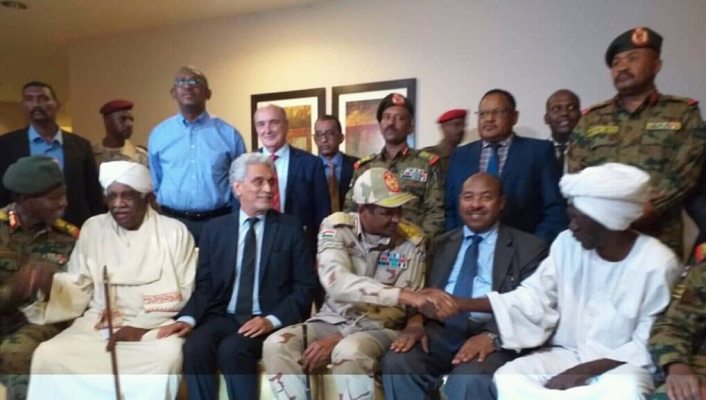Sudan drafting committee fails again to finalize agreement on power-sharing

July 12, 2019 (KHARTOUM) – The drafting committee of the agreement on the power-sharing between the ruling Transitional Military Council (TMC) and the opposition Forces for Freedom and Change (FFC) has failed to conclude its works; as the parties will resume talks on Saturday, said the mediators
The TMC and FFC on 5 July struck a deal on the last sticking point which is the composition the Sovereign Council, a collective head of state with mostly symbolic and ceremonial powers.
Accordingly, they formed a committee tasked with the drafting of the deal before to hand it over to the negotiating teams for endorsement and referring it to the Ethiopian and African mediators.
However, the mediation in the first hours of Friday morning held a short press briefing to announce for the second time that some differences persist between the two parties on Constitutional Declaration which determine the powers of the different organs of the transitional authority and that talks will resume on Saturday.
Opposition officials under the cover of anonymity told Sudan Tribune that the TMC members who attended the meeting seem reconsidered their previous positions and accepted almost all that was agreed but they are still sticking on some matters.
“They want to have exclusively the power to declare war and to also the second difference is over the formation of committees including the national security one,” said an FFC official after the end of the meeting on Friday morning.
The other pending issue is that the military council wants parliament’s powers to be restricted to matters in relations with the transition.
“This means that the transitional parliament cannot bring any change to the existing legislation in term of freedoms and human rights in order to create a conducive environment before general elections. Also, it means they want to deprive the parliament of its revolutionary legitimacy,” he stressed.
However, the source seemed optimistic and expressed hope that the agreement to be initialized on Saturday or Sunday.
In a TV interview earlier this week, the head of the transitional council Abdel Fattah al-Burhan disclosed that the army general when they took power and removed al-Bashir as result of the popular uprising they planned to keep power for two years before to organize new elections.
However, the continuation of the protests and the regional and international pressures forced them to reconsider their plans.
During the different rounds of talks, the Sudanese military officials have wanted that the national security to be a ‘reserved domain’ of the army while the opposition insists that the government has to assume its full responsibility including the participation of the prime minister and other concerned officials in the national security committee.
Last June, the African Union’s Peace and Security Council demanded the resumption of talks between the Sudanese parties to establish a civilian-led Transitional Authority.
However, the Sudanese general believe they have to control the transitional process saying that its role is to protect the country and to prevent chaos.
(ST)
